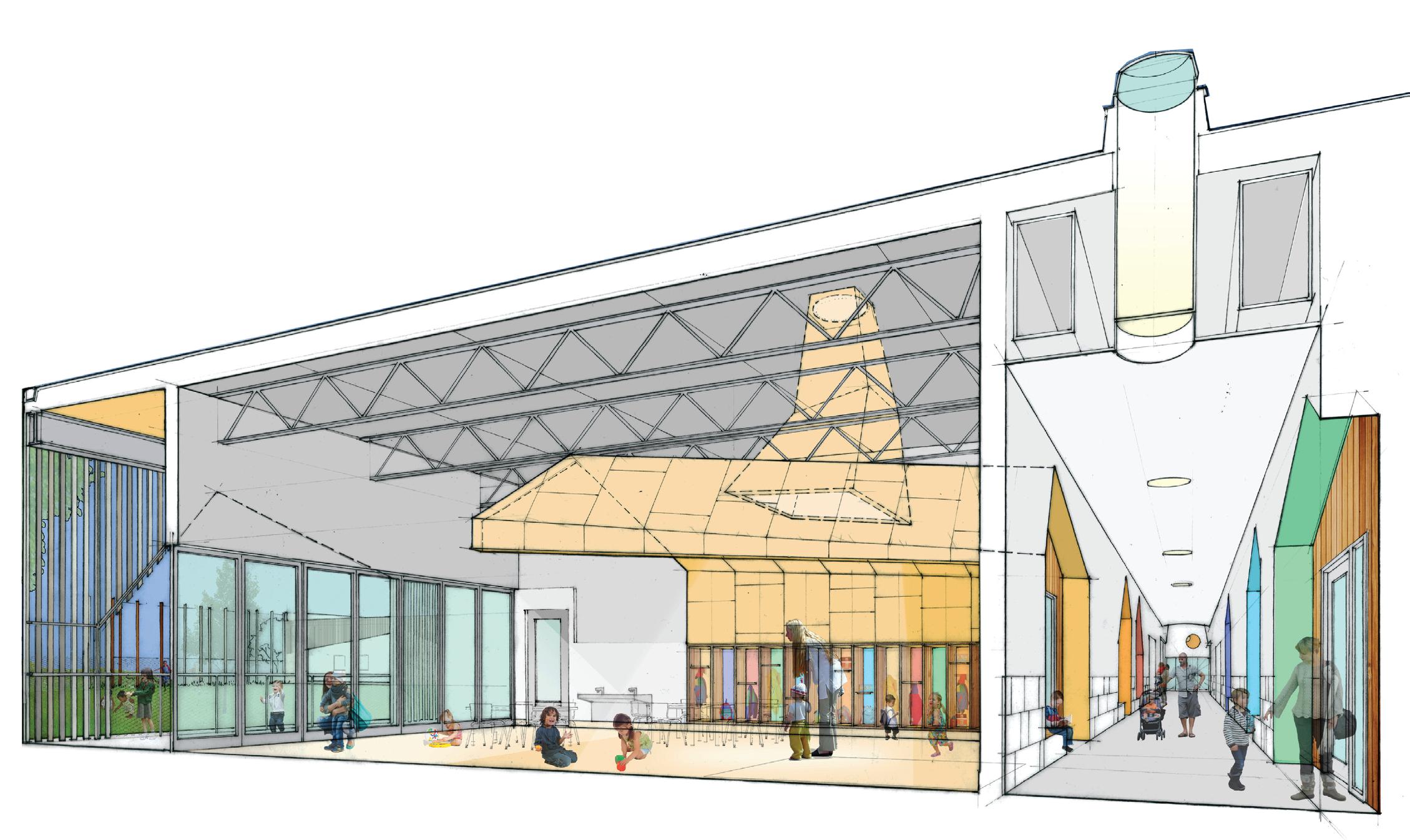
3 minute read
Objectives
The Importance of Early Childhood Education
The Helen R. Walton Children’s Enrichment Center (HWCEC) and Early Childhood Initiatives Center (ECIC) celebrate the significant influence that the first few years of life have on children’s longterm development. This critical period guides their formation of social and emotional skills, as well as their physical and cognitive health. Through continued dedication to the children of Northwest Arkansas, the HWCEC and ECIC look to elevate the standards of childhood education across the region, developing a community of educators that are committed to the lifelong benefits of each child’s growth and development. 1
Helen R. Walton Children’s Center: Advocacy
-The Ounce

Regional Impact of HWCEC and ECIC
Helen R. Walton Children’s Enrichment Center (HWCEC)
Children are our first priority at the Helen R. Walton Children’s Enrichment Center; our doors opened in 1982. We are a trusted name in both the community and the early childhood industry. Our commitment is to provide families access to the highest quality early childhood education and care. The Center reaches beyond our families served and collaborates with early childhood programs throughout Northwest Arkansas. 1
The Early Childhood Initiatives Center (ECIC)
The ECIC collaborates with the nearly 500 early childhood programs in Northwest Arkansas, to ensure that every child, infant through pre-k, has access to the highest quality of early childhood education and care. High-quality early childhood education benefits the child, workforce and society through increased graduation rates, parental earnings and employee retention, and ensures a talent rich pipeline, leading to a $9.21 return on investment for every dollar spent in early education. We rely on the generosity of volunteers, advocates and donors in our community. 2
Helen R. Walton Children’s Center: Advocacy The Early Childhood Initiatives Center (ECIC) Summary and Statistics

early childhood education for children age 0-5 240 students, annually
education and childcare training courses at ECIC 75+ courses, annually

free outreach programs to childcare programs in Northwest Arkansas 500+ childcare programs
5,000 early childhood professionals
education, health, and wellness training for childcare professionals
staff from 507 programs
accreditation, licensing, business and professional development
242 licensed programs
combined, the training and outreach programs reach more than 40,000 children (age 0-5) in Northwest Arkansas every year
“By combining these two forces together, we will see a ripple effect across our community.”
Elevating Standards for Early Childhood Practices
As committed advocates towards the advancement of early childhood best practices, HWCEC looks to elevate the standards for research, policy, and professional development in order to address the social, emotional, physical, and cognitive needs of children. 1 This project is an opportunity to implement innovative strategies towards this goal.
Objectives:
• natural learning environments that will provide authentic and inspiring space for young children to learn
community of educators that are dedicated to lifelong learning for the benefit of each child’s growth and development
health and safety initiatives that will promote health, nutrition, and safety of children and staff
sustainable funding for future support of the highest quality of care and education
Press Release: Helen R. Walton Children’s Enrichment Center Finalizes Design Team for New Facility

A Holistic Approach to the Multiplicity of Children’s Health
Environmental Health
Indoor/Outdoor Classrooms create a seamless transition between nature and learning, drawing in daylight to provide feelings of comfort and connection to the outdoor environment

The recognizable gable entry frames the classroom, extending within to provide a comforting, homey feeling while children learn and play
Physiological Health Emotional/Mental Health
Improving indoor air quality with material toxicity and emissions evaluations, ventilation and humidity control, and a smoke-free campus
Intellectual Health
Playful variations in textures, colors, and materials create stimulating and engaging environments that foster intellectual development
Nutritional Health
Herb Gardens and Teaching Kitchen provide hands-on lessons in
Community/Social Health
nutritional value and healthy eating
Occupational Health
ECIC pre-service training equips staff with professional skills and strategies
for managing stress
Training centers, material libraries, and community gathering spaces create a regional hub for early childhood professionals

Exercise/Physical Health
Playscapes, walking trails, and bike paths encourage physical fitness and connection to the surrounding community
CHALLENGES
CHALLENGES




